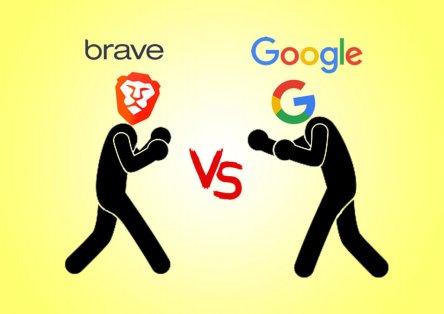What is Brave Browser?: What Recruiters Must Know about This Ad-Free Web Browser and Search Engine
As a recruiter, it’s essential that you’re familiar with the web browsers and search engines your prospects are using. This way, you can better optimise your website to meet your visitors’ specific browsing needs and provide them with a better user experience.
These days, there are many new web browsers, many of which have built-in search engines. These include Brave, a new browser and search engine said to provide a safer alternative to Google. So, what is Brave browser and what makes it different from the search giant?
Contents
A Closer Look at Brave Browser and Search Engine
Brave web browser rose to fame because of its ability to block ads. It recently announced the launch of its own search engine as part of its efforts to challenge Google and make a mark in the highly lucrative search market.
Going against Google is no easy feat. Processing more than 92% of online searches worldwide, the search giant certainly has the lion share. Bing followed in second place with a measly 2.7%. However, the people behind Brave are confident that they have a chance to claim a more significant share of the market as Google scrambles to protect its users’ data privacy while governments intensify their antitrust scrutiny of the search giant.
Focusing on the privacy of its users, Brave will have its own search engine in the later part of 2021. On its first run, it would automatically remove ads and delete code that can track a user’s online activity. This service is similar to those offered by other browsers, such as Apple Safari, Mozilla Firefox, and Microsoft Edge.
Once the initial run is over, the ads will start showing up. However, users will have the option to continue having an ad-free search experience by paying up and joining Brave’s ad system. Besides eliminating traces of their online behaviour, this system will also provide them with a percentage of ad revenues through Brave’s cryptocurrency. Publishers of web content and YouTube or Twitch videos can also sign up to receive payments from Brave users.
How Brave Works
Now that you know the answer to the question “What is Brave browser?” the next thing you should know is how its new search engine works. In early 2021, Brave acquired Tailcat from Hubert Burda Media in Germany. Unlike Google, Tailcat could deliver search results without tracking users’ online behaviour or asking them to create a profile. Brave used this technology as the foundation of their new search engine.
Search engines require many resources to collate data, build an index of data, and then deliver accurate search results to users. This is why most of them would re-use search results from Google. Breaking away from the norm, Brave said it would not piggyback off the search giant. Instead, it would rely on the users of its search engine.
People who would join Brave’s data-sharing system will provide information about the things they search online and the results they click on. Then, the search engine would utilise the data it receives to refine its search capabilities and provide the answers its users are looking for.
To ease concerns over the system’s potential data privacy issues, Brave Chief Executive Brendan Eich assured everyone that the data provided by users, called “clickstream” data, would be anonymised. This is to ensure that users would not be identified over the information they share online.
Utilising clickstream data to provide search results is nothing new. Microsoft did it with Bing a few years ago, which earned it a lawsuit from Google for allegedly copying its search results. However, similar to Microsoft, Eich believes using clickstream data in this manner is neither wrong nor unethical. He said today’s machine learning systems do not simply copy search results from Google. They also aggregate and optimise them.
Eich also argued that Brave’s search engine is a machine learning system that focuses on its users. Unlike Bing, it would not “blindly scrape” and copy search results from Google. However, he admitted that their search engine still has some ways to go. They would need to convince more people to start using Brave web browser and search engine to enhance their capabilities. The more clickstream data they can obtain from users, the more accurate the search results would be.
Indeed, challenging Google is an uphill climb. However, Eich is confident that more people would see Brave as a better and safer alternative to Google. Since Brave browser’s launch in 2016, its user base has stood at 32 million people. Eich and his team are optimistic that they can reach their target of 50 million users by the end of this year.
Stop Focusing on Google!
With lots of web browsers and search engines emerging to challenge Google, focusing solely on the search giant is not exactly a wise move. As more people look for safer and less intrusive alternatives to Google, it is your job as a recruiter to optimise your site for other major search engines. This way, you can enjoy better online visibility and provide job seekers and employers with outstanding user experience regardless of the online platforms they are using to find and access your site.
Do you need help optimising your recruitment site for various web browsers and search engines? We can help! Recruitment Traffic has a highly experienced SEO team ready to provide you with the expert assistance you need. Please speak with us today and let us create an SEO strategy tailored to your specific requirements.
Drive Your Recruitment Business Towards The Best Results.
Talk to us about how we can help.






